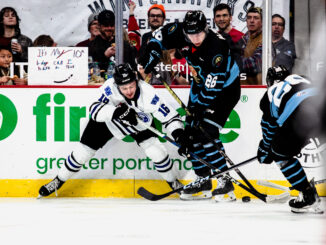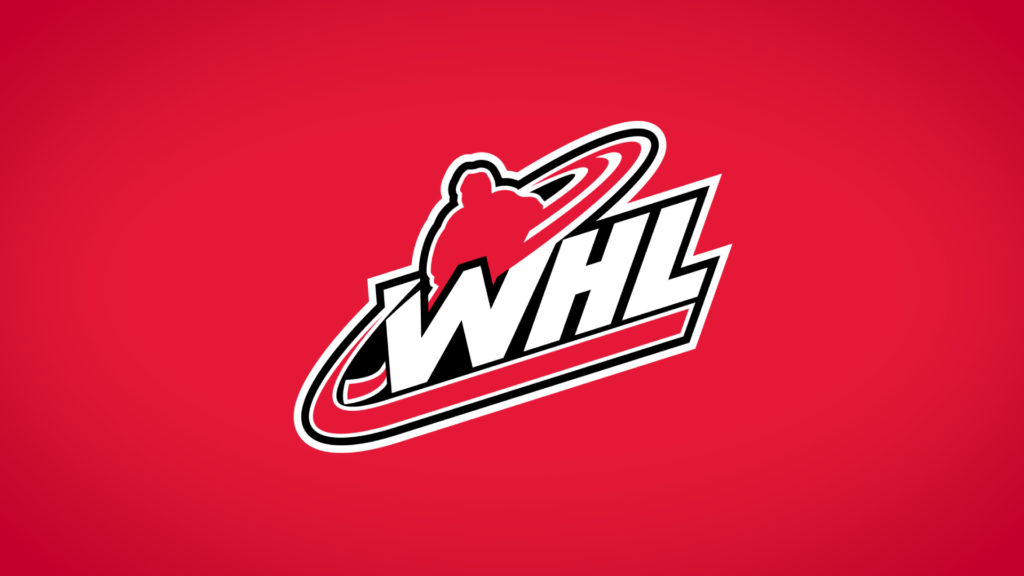
The WHL seems to be going through many issues right now, as the idea of reopening is being bandied about.
The league, which is ticket-driven, is looking at maybe a start into October, which would push things like training camps a month later. The biggest dilemma is figuring out the border situation. The Canada/US border is currently restricted to essential personnel only and Canada’s Health Minister has already informed the National Hockey League that they are not essential, which then transcends down league levels.
Already, the Western States Hockey League (WSHL), an 11-team league with franchises in Alberta and Washington, has announced the cancelation of the 2020-21 season. That would mean not only the teams are out revenue, but also the arenas, which have already been devastated by cancelations of events during the summer.
The WHL has had its own issues, not the least of which are four teams that are community-owned. Prince Albert, Saskatchewan, which is one of the community-owned teams, has announced the closure of its recreational facilities through the end of the year. The city estimates nearly three quarters of a million dollars will be lost on shuttered venues. The biggest problem lies in ticketed events. With the current allowance of 50 people, which is far below the three thousand that the Raiders are close to nightly, no one is sure where the end lies. Lethbridge Hurricanes, Swift Current Broncos and Moose Jaw Warriors are dealing with their own issues now.
In Prince George, the team held a virtual conference on Facebook with members of the Cougars organization recently. The two events held were to give fans a closer look into the organization, tickets, attendance and more. Held by broadcaster Fraser Rogers, the biggest bombshell was that of attendance and the staggering losses that the squad has been going through since the new ownership came in. The crowd figures were told to have been around 1500 below what the team needs to break even. If one takes that number and multiples by an average ticket price and 34 home games, the total could be upwards of a million dollars per season. That staggering figure shows how vulnerable it is to run a franchise. The local community is still reeling from family ownership, the Brodsky family who also owned the Saskatoon Blades. In speaking to people in Prince George, there is a very strong dislike of the family and the stain seemingly can not be washed from the Cougars. The other team plays at the Civic Center as the BCHL Prince George Spruce Kings. The Kings had no involvement with the family and enjoy a decent nightly attendance.
The Cougars work alot with the community and, like the Tri City Americans, have solid game night activities featuring many local groups but still have a tough time filling the stands.
There are still no feelers out on the Portland Winterhawks. The team was one of the assets put up in a loan through Bill Gallacher, which was defaulted on leading to the bankruptcy. The ownership group of The Portland Pickles has expressed an interest in purchasing the squad, the third ownership change since the team arrived in 1976.
The media coverage of the WHL and the Winterhawks has taken another hit. Paul Figler, who runs DUB NETWORK has closed the site as of Friday. The Network was the only regular site where credentials were afforded too. The Hawks have had many issues with coverage in The Oregonian. The last reporter, Molly Blue, went to cover the Portland Thorns. The Hawks have have limited coverage through OregonLive.com from Chad Balcomb, Dylan Baumgartner and Samantha Meese with the Portland Tribune’s Paul Danzer, who was with the Columbian Sports for years as the only paper media. Radio and television stations are lucky if once or twice a year the Hawks see a blip of coverage before it is forgotten about.
What has been a long-standing problem is the lack of understanding of what Junior Hockey is. Yes, some players are in high school and the rest take college courses, but it is the level where the players are drafted to play professional hockey.
One of the reasons I started with Oregon Sports News was to give a regular voice, and with the coverage extended to radio and print media, it has been phenomenal.




